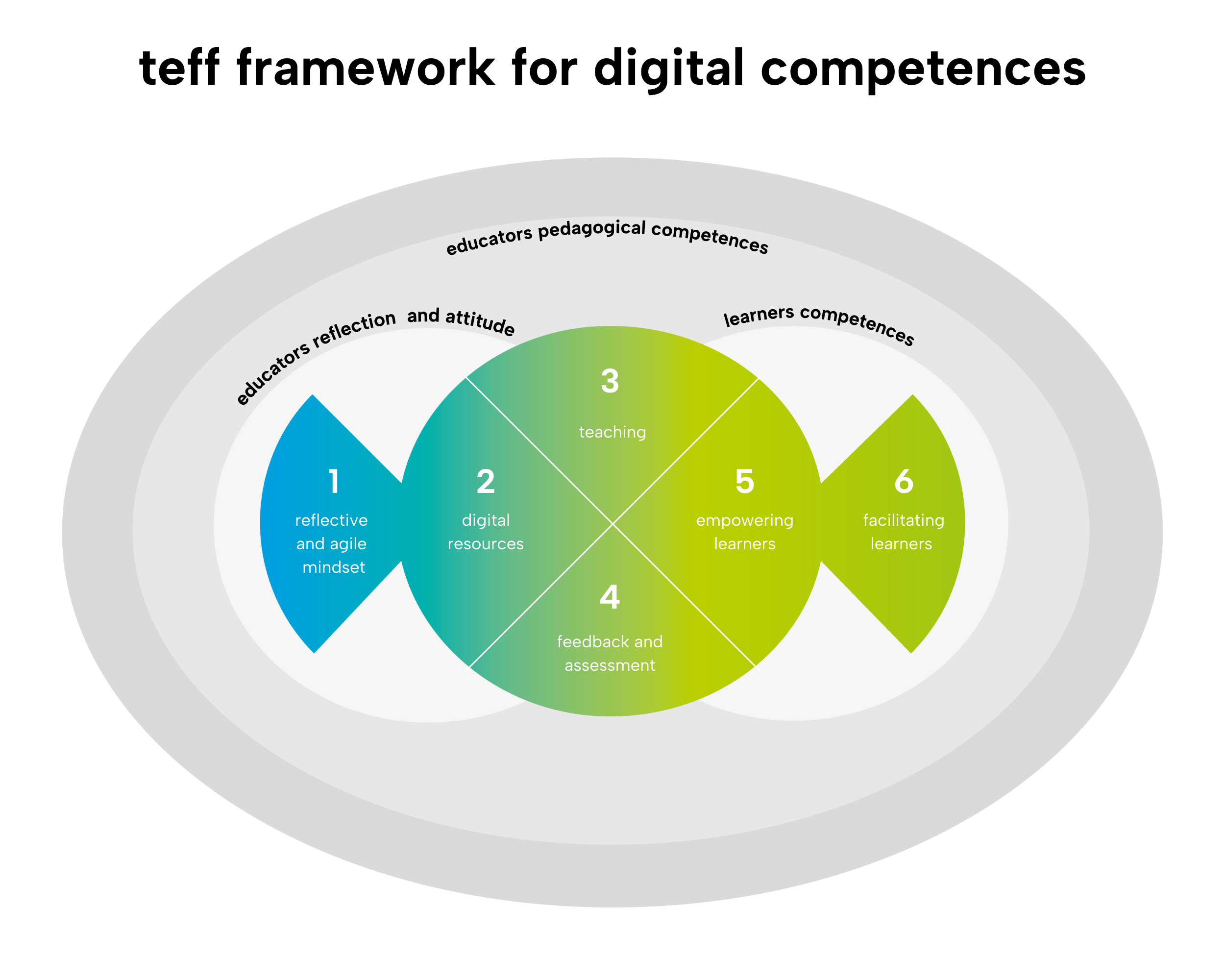
1 reflective and agile mindset
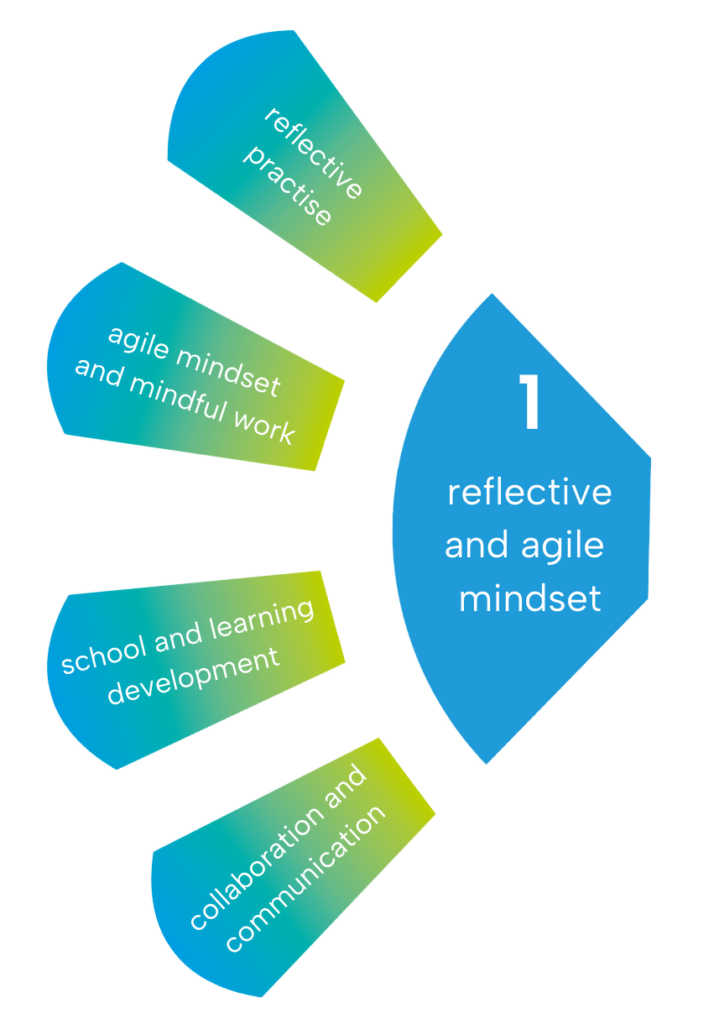
Teachers need a reflective and agile mindset to deal with the rapid changes of digitalisation and to prepare a learning situation for learners in this rapidly changing society.
To start the learning module for area 1, please click on the following link:
2 digital resources
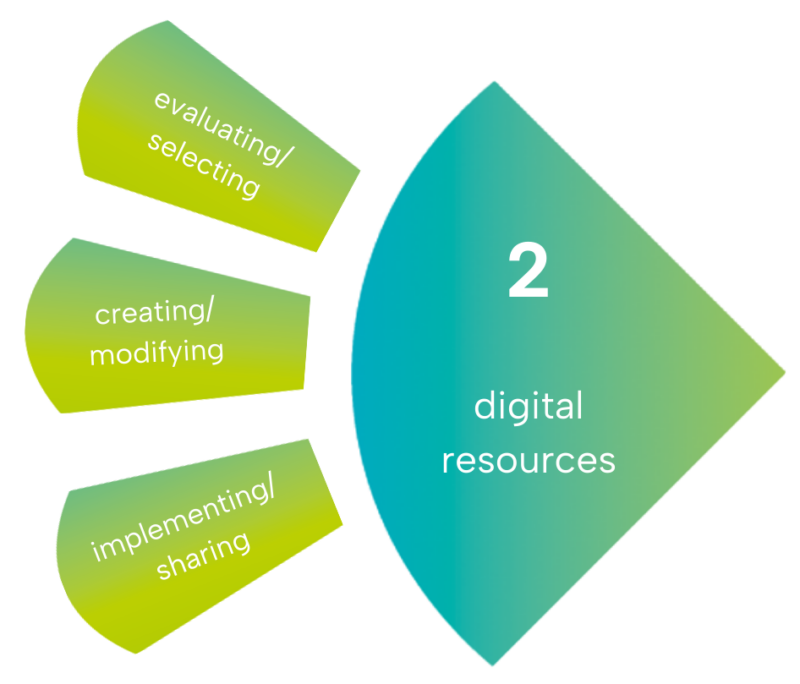
Educators today are confronted with a wealth of digital (educational) resources that they can use for teaching. At the same time, they need to be aware of how to use and manage digital content responsibly. They must observe copyright regulations when using, modifying and sharing resources and protect sensitive content and data such as digital exams or students' grades.
To start the learning module for area 2, please click on the following link:
3 teaching
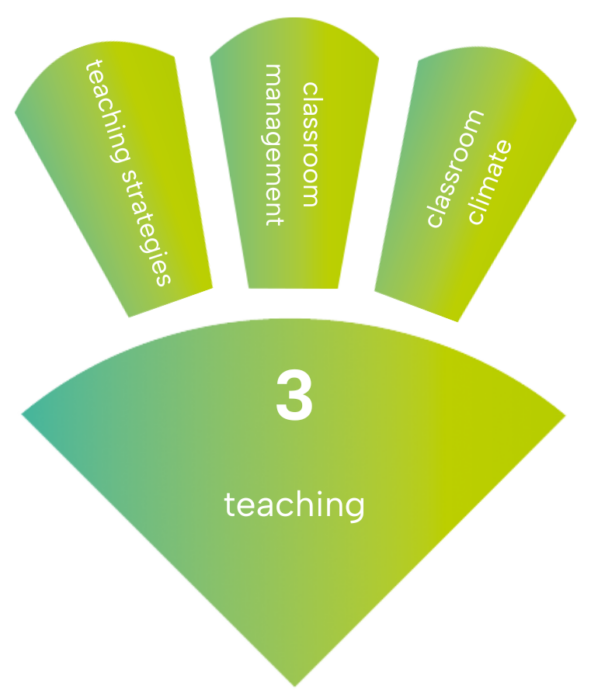
Digital technologies can enhance and improve teaching and learning strategies in many different ways. The educator’s specific digital competence lies in effectively orchestrating the use of digital technologies in the different phases and settings of the learning process.
To start the learning modul for area 3, please click on the following link:
4 assessment and feedback
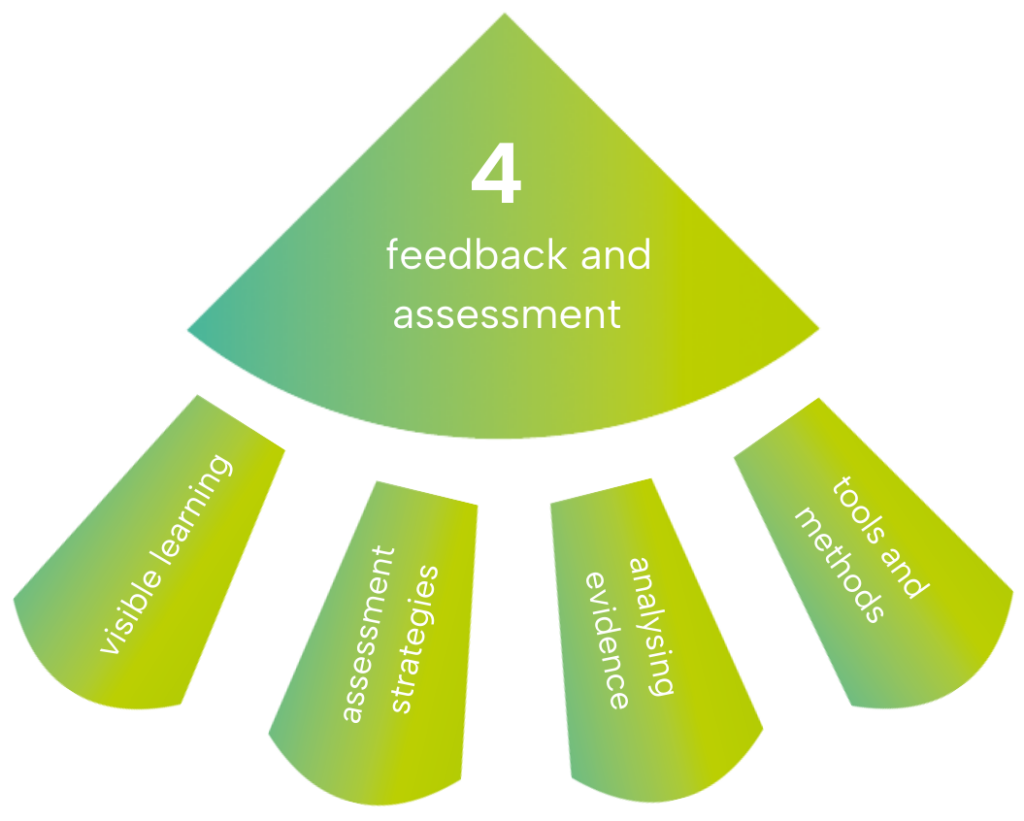
Assessment can be a facilitator or bottleneck to innovation in education. Digital technologies can contribute to directly monitoring learner progress, to facilitating feedback and to allowing educators to assess and adapt their teaching strategies.
To start the learning modul for area 4, please click on the following link:
5 empowering learners
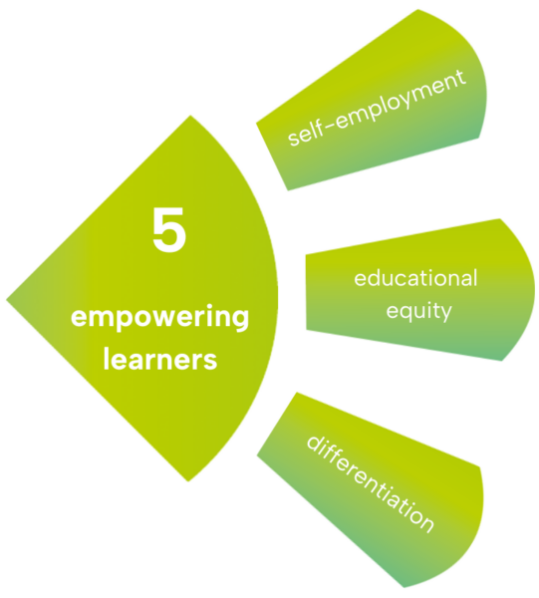
One of the key strengths of digital technologies in education is their potential for supporting learner-centred pedagogic strategies and boosting the active involvement of learners in the learning process and their ownership of it. Digital technologies can contribute to supporting classroom differentiation and personalised education by offering learning activities adapted to each individual learner’s level of competence, interests and learning needs.
To start the learning modul for area 5, please click on the following link:
6 facilitating learners
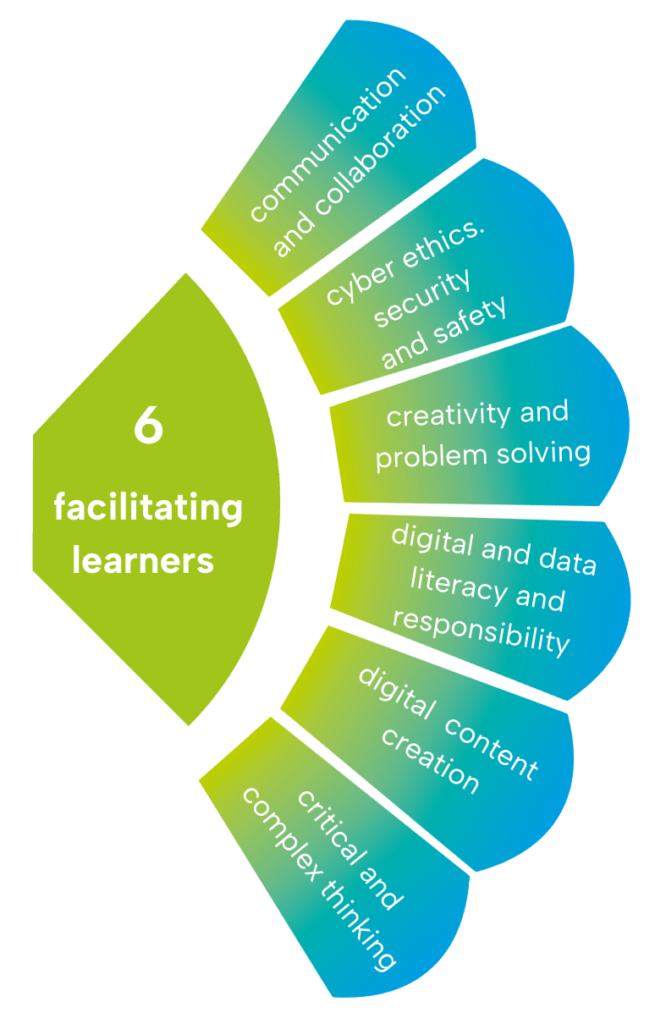
Digital competence is one of the transversal competences educators need to instil in learners. The ability to facilitate learners’ digital competence is an integral part of educators’ digital competence.
To start the learning modul for area 6, please click on the following link:
